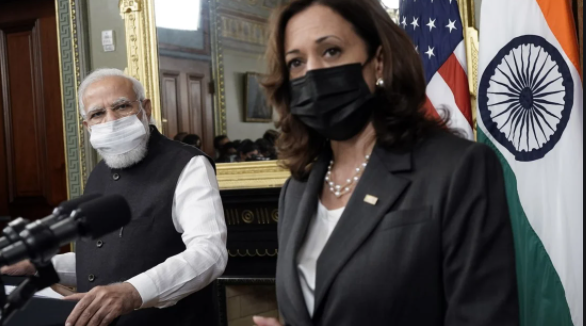Virendra Pandit
New Delhi: Until a few weeks ago, Pakistan Prime Minister Imran Ahmed Khan Niazi was desperately waiting, almost beseeching, for at least one telephonic call from US President Joe Biden, who had spoken to all-important world leaders after assuming office in January 2021.
Except for Pakistan. This matter became a major embarrassment for Islamabad and the Pakistani media. The Opposition poked fun at Khan for failing to receive even a call from the White House eight months after the swearing-in of the new President and Vice-President.
The Pakistan PM’s phone never rang for this call, and the former cricketer-turned-politician was left to vent his spleen against the West, and fell back on Islamist forces for support.
And when Imran tried to speak to his Indian counterpart, Narendra Modi did not take the call! In other words, Biden is not calling and Modi is not responding.
Clearly, Pakistan has become untouchable, an international pariah. It even tried to somehow get the Taliban global recognition—although Islamabad itself has not recognized the new government in Kabul, lest the Financial Action Task Force (FATF) blacklist it and turn off all global financial taps! International platforms like the SAARC and the United Nations sabotaged this joint tactic of Islamabad and Beijing to provide a backdoor recognition to the Taliban.
But what came next hints at America’s emerging strategy.
It began to unroll when Vice- President Kamala Harris, during her maiden meeting with Modi in Washington, suo motu referred to Pakistan’s role in terrorism. She said there were terror groups working in the country and asked Islamabad to take action so that it does not impact America and India’s security, media reported on Friday.
Modi held the meeting with Harris at the White House on Thursday during which they decided to further cement the Indo-US strategic partnership and discussed global issues of common interest, including threats to democracy, Afghanistan, and the Indo-Pacific.
When the terror matter came up during their meet, Harris referred to Pakistan’s role in that regard (of terrorism), Foreign Secretary Harsh Vardhan Shringla told reporters when asked if the issue of Pakistan’s role in terrorism surfaced during the two leaders’ meeting.
“She asked Pakistan to take action so that this will not impact US security and that of India. She agreed with the Prime Minister’s briefing on the fact of cross-border terrorism, and the fact that India has been a victim of terrorism for several decades now and on the need to rein in, and closely monitor Pakistan’s support for such terrorist groups”, he said.
Harris said that it is incumbent on the two nations—the US and India–to protect their democracies in the best interests of the people of the two countries, Shringla pointed out
“As democracies around the world are under threat, it is imperative that we defend democratic principles and institutions within our respective countries and around the world. And that we maintain what we must do to strengthen democracies at home and it is incumbent on our nations to of course protect democracies in the best interests of people of our countries, she said.
Their meeting came a day ahead of the maiden bilateral meeting between Modi and President Joe Biden, and the Quad Leaders’ Summit at the White House on Friday.

